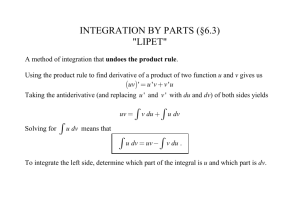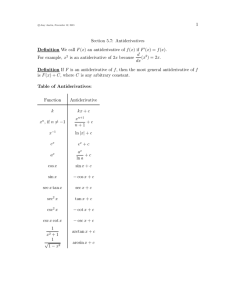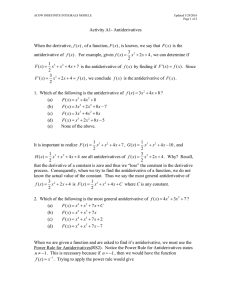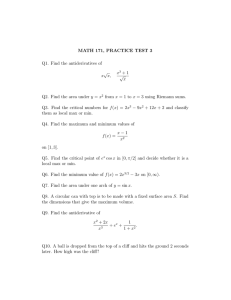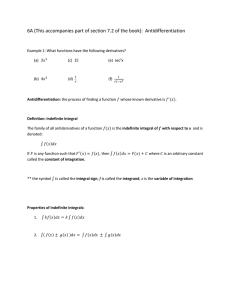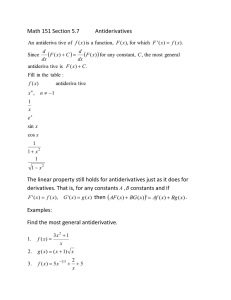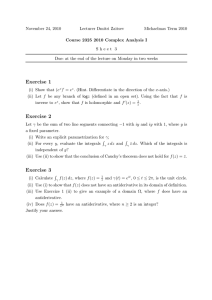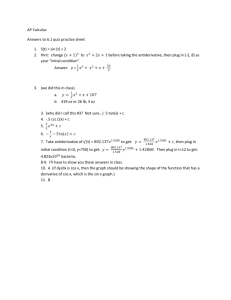( )
advertisement
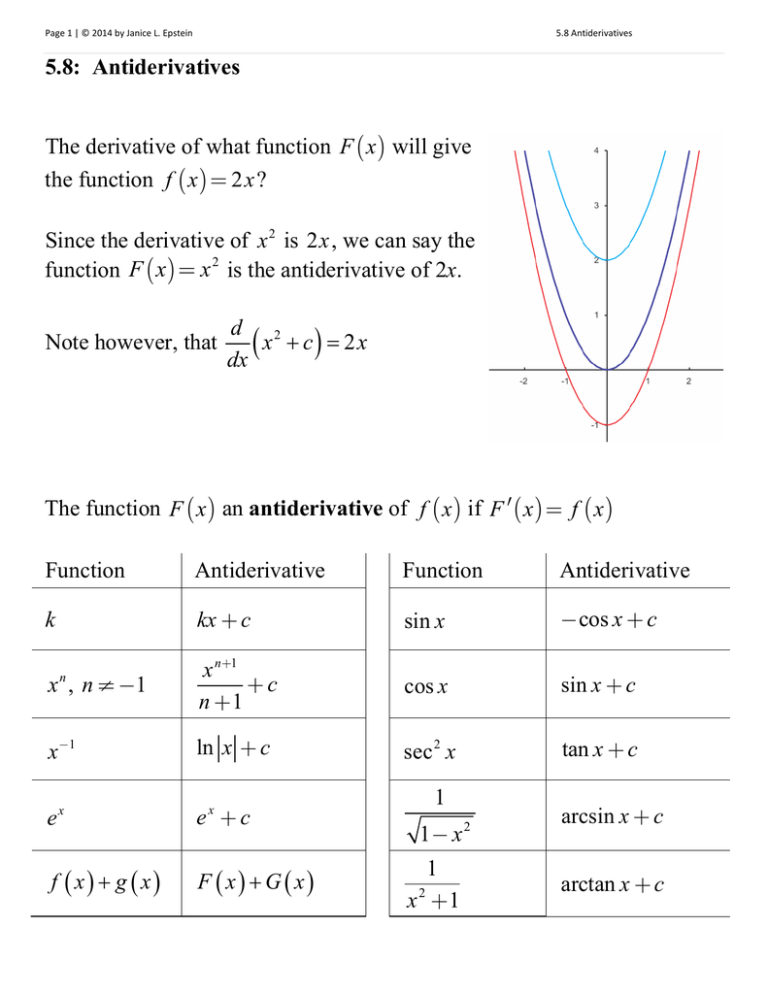
Page 1 | © 2014 by Janice L. Epstein 5.8 Antiderivatives 5.8: Antiderivatives The derivative of what function F ( x ) will give the function f ( x ) = 2 x ? Since the derivative of x 2 is 2x , we can say the function F ( x) = x 2 is the antiderivative of 2x. Note however, that d 2 x c 2x dx The function F ( x ) an antiderivative of f ( x ) if F ¢ ( x ) = f ( x ) Function Antiderivative Function Antiderivative k kx + c sin x - cos x + c x , n ¹ -1 x n+1 +c n +1 cos x sin x + c x -1 ln x + c sec 2 x tan x + c n e x f x g x e +c x F x G x 1 1- x 2 1 x2 +1 arcsin x + c arctan x + c Page 2 | © 2014 by Janice L. Epstein 5.8 Antiderivatives Example: Find the most general antiderivative for the following functions (i) f ( x) = x3 - 4 x 2 + 17 (ii) f ( x ) = 3 x 2 - x 3 x + x 2 -1 (iii) f ( x) = x3 (iv) f ( x) = e x + 4 1- x 2 Page 3 | © 2014 by Janice L. Epstein 5.8 Antiderivatives Example: Find f ( x ) given that (i) f ¢ ( x) = 12 x 2 - 24 x + 1 and f (1) = -2 (ii) f ¢¢ ( x) = 3e x + 4sin x , f (0) = 1 , and f ¢ (0) = 2 Example: A particle is moving with acceleration a (t ) = 3t + 8 m/s2. Find the position s (t ) of the object at time t if we know s (0) = 1 and v (0) = -2 Page 4 | © 2014 by Janice L. Epstein 5.8 Antiderivatives Example: A stone is thrown downward from a 450m tall building at a speed of 5 m/s. Find a formula for the distance of the stone above ground. Example: A car braked with constant deceleration of 40 ft/s2. The skid marks produced were 160 ft before the car came to a stop. How fast was the car traveling when the brakes were first applied?
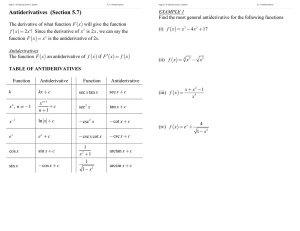
![Antiderivatives [7.5]](http://s2.studylib.net/store/data/009839726_1-71c8c3c8e7789734542b65fee1d9e6d4-300x300.png)
